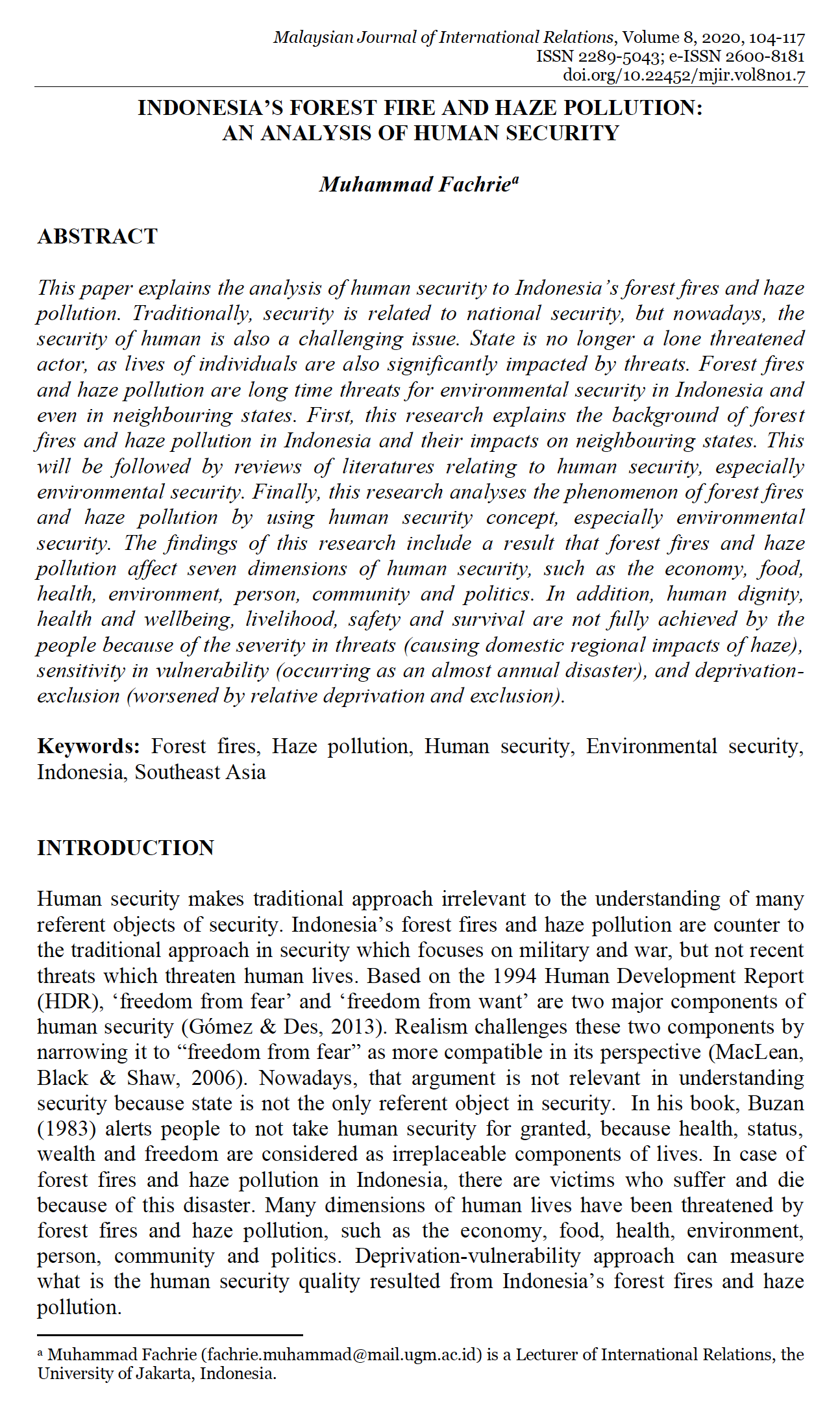Indonesia's Forest Fire and Haze Pollution: An Analysis of Human Security
Main Article Content
Abstract
This paper explains the analysis of human security to Indonesia’s forest fires and haze pollution. Traditionally, security is related to national security, but nowadays, the security of human is also a challenging issue. The state is no longer alone threatened actor, as the lives of individuals are also significantly impacted by threats. Forest fires and haze pollution are long time threats for environmental security in Indonesia and even in neighbouring states. First, this research explains the background of forest fires and haze pollution in Indonesia and their impacts on neighbouring states. This will be followed by reviews of literatures relating to human security, especially environmental security. Finally, this research analyses the phenomenon of forest fires and haze pollution by using the human security concept, especially environmental security. The findings of this research include a result that forest fires and haze pollution affect seven dimensions of human security, such as the economy, food, health, environment, person, community and politics. In addition, human dignity, health and wellbeing, livelihood, safety and survival are not fully achieved by the people because of the severity in threats (causing domestic regional impacts of haze), sensitivity in vulnerability (occurring as an almost annual disaster), and deprivation-exclusion (worsened by relative deprivation and exclusion).
